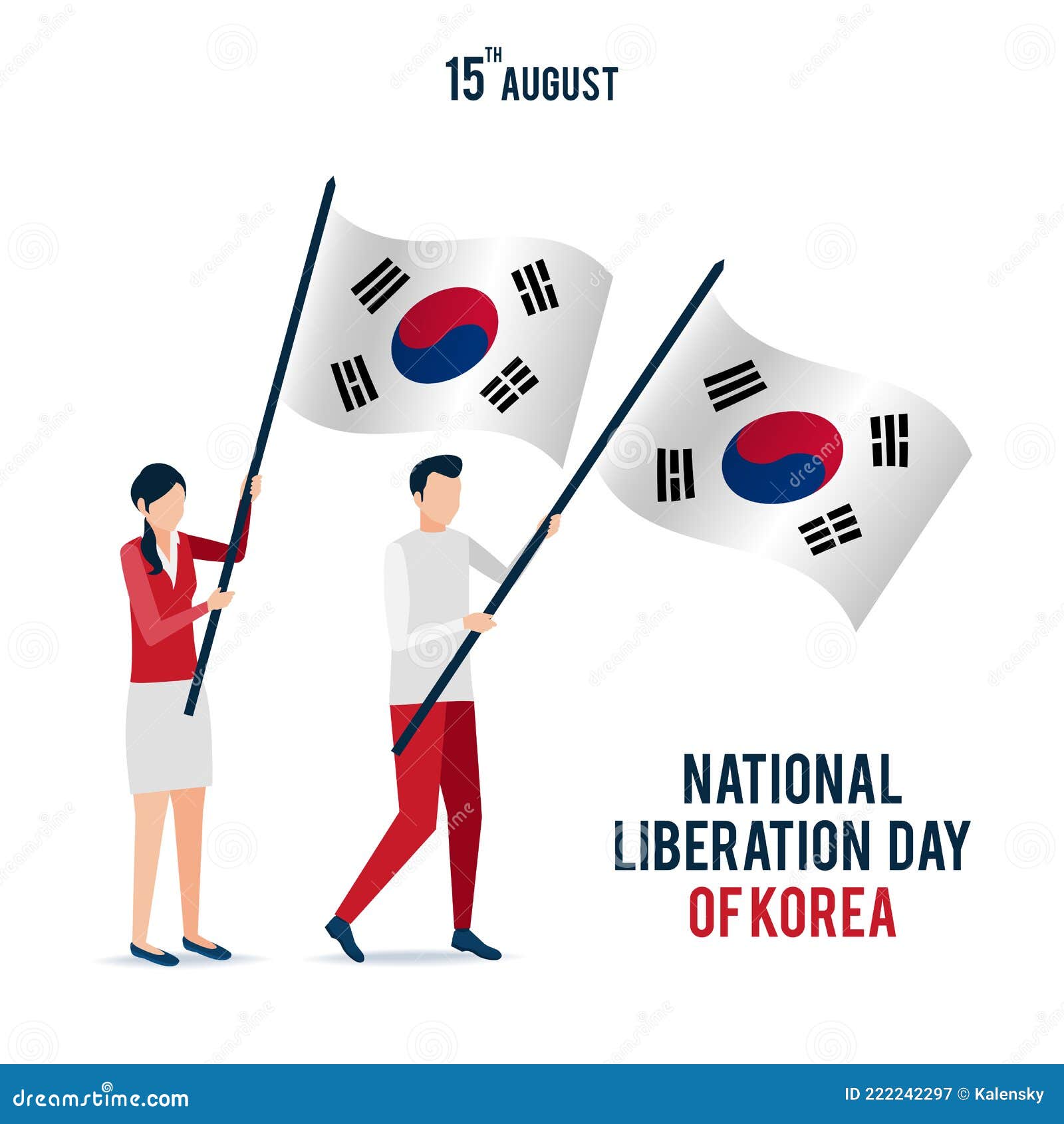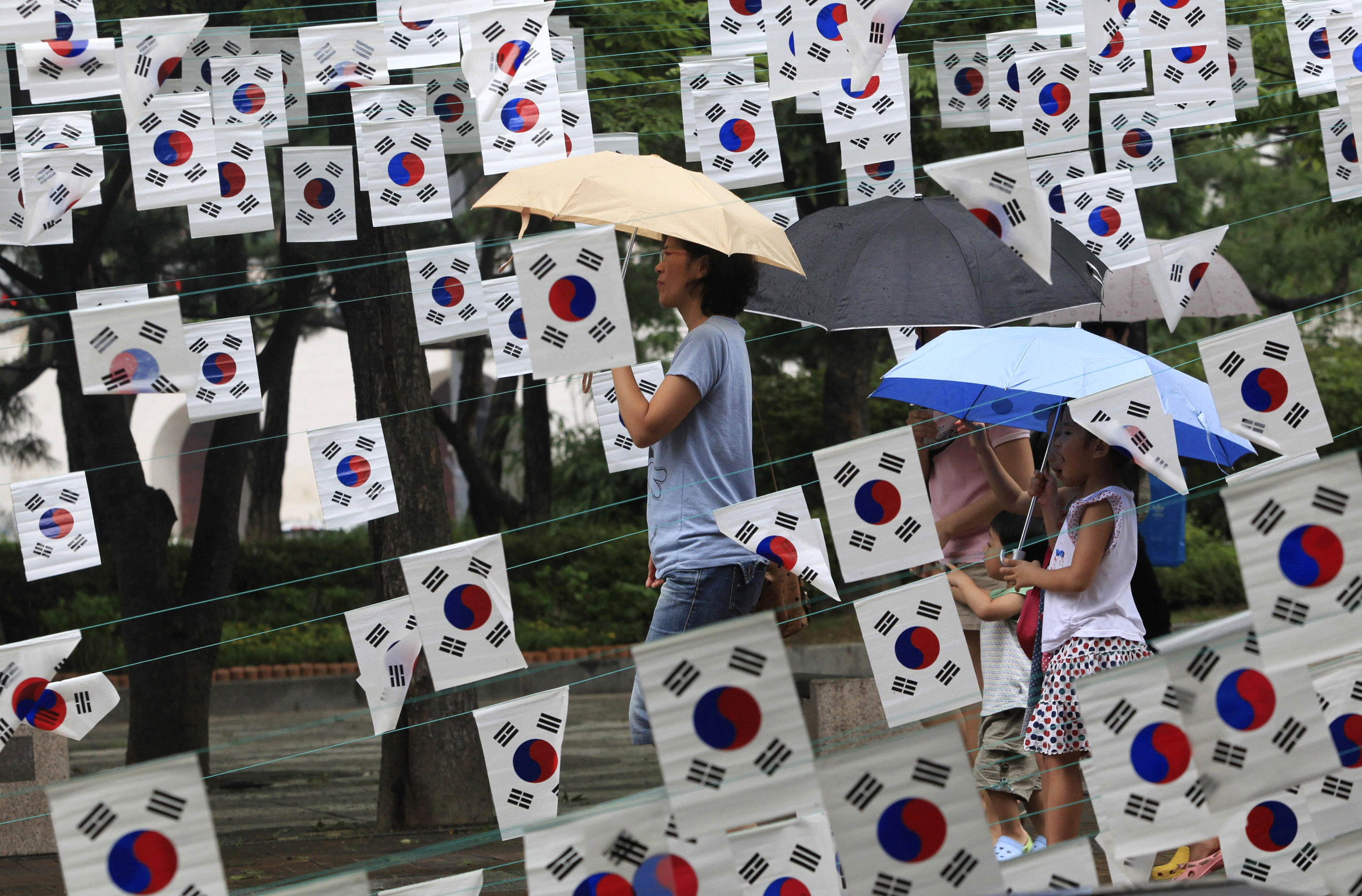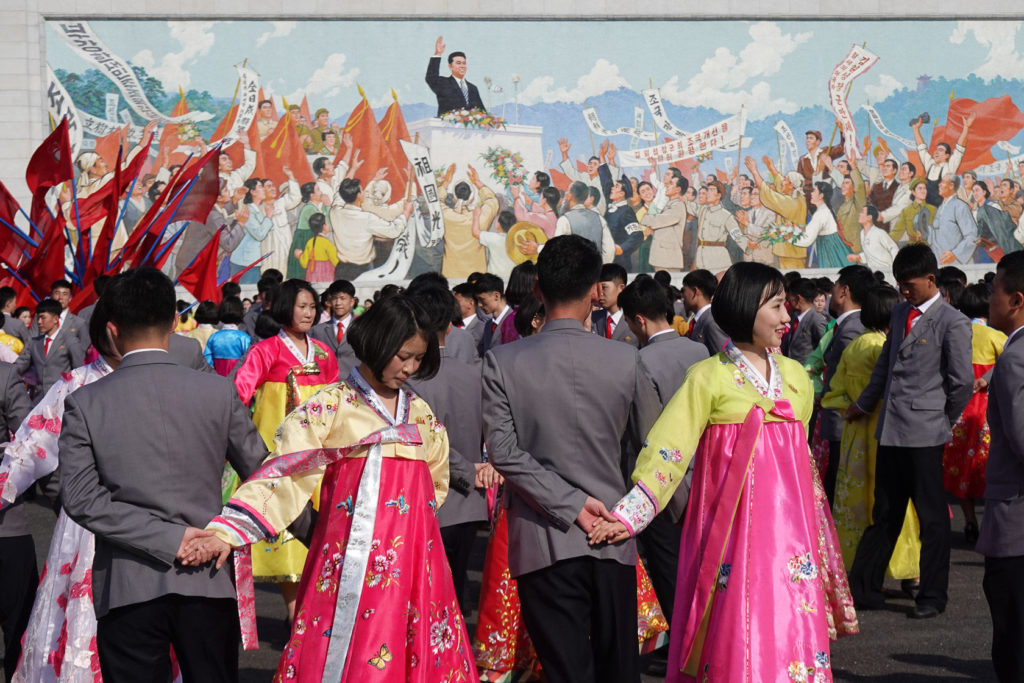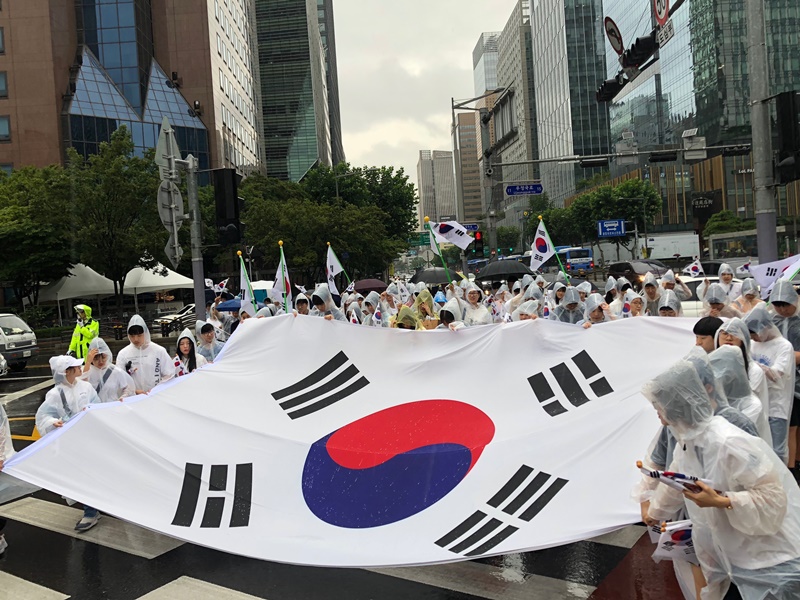
Korea National Liberation Day Hand Lettering With Flag. South Korea Independence Day. Korean
On that historic day in 1945, allied forces liberated the Korean peninsula from Japanese colonial rule. Known as "the day the light returned" to South Koreans, and "Liberation of the Fatherland Day" to North Koreans, the National Liberation Day of Korea is the only public holiday that both North and South Koreans celebrate.

5 things you need to know about Korea Liberation Day, marked today in L.A., San Pedro and both
Gwangbokjeol literally means " The day the light returned ", symbolizing South Korea's freedom from the Japanese Imperialism in 1945, and it's the National Liberation Day of Korea. Needless to say, it's a very important day for Koreans, in fact National Liberation day (Gwangbokjeol) is also celebrated in North Korea by the name 조국.

Korea National Liberation Day Hand Lettering with Flag. South Korea Independence Day. Korean
The day when Korea finally threw off its Japanese rulers is known as National Liberation Day of Korea or Korean Independence Day. In 1945, Korea was finally liberated from its occupation by Japan and, exactly three years later, on August 15, 1948, the Republic of Korea was officially established.

Liberation of Korea August 15, 1945 Korean Friendship Association
Liberation Day is a day, often a public holiday, that marks the liberation of a place, similar to an independence day. Liberation marks the date of either a revolution,. Korea, North / Korea, South: August 15: 1945 Liberation from Japan: Gwangbokjeol

National Liberation Day of Korea. Stock Illustration Illustration of holiday, happy 222242297
August 15, 2014, SEOUL - August 15 marks one of the most important public holidays in the Korean calendar, Independence Day or Gwangbokjeol as it is known locally. Translated literally, it means "Restoration of Light Day", and celebrates the victory over Japan which liberated Korea from 35 years of Japanese colonial rule on August 15, 1945.

South Korean national flags are on display in Seoul to celebrate the Aug. 15 Korean Liberation
Korean National Liberation Day. Korea celebrates Independence Day on Aug. 15, known as "Gwangbokjeol," which literally translates into "bringing back the light" in Korean. The combination of three.

ANNOUNCEMENT Korean Consul General to attend Korean Liberation Day Recognition by King County
Commemorating National Liberation Day. President Yoon Suk-yeol, center, takes part in a ceremony at the Seoul National Cemetery in Dongjak District, Seoul, Sunday, to transfer the remains of 17 independence fighters buried at a cemetery in Northern Seoul to the Daejeon National Cemetery, ahead of the 77th National Liberation Day, today. Yonhap.

Korea National Liberation Day Lettering in English and in Korean. South Korea Independence Day
On August 16, 1945, the day after our liberation, Ahn Jae-hong -- a nation leader -- gave a speech broadcast to 30 million Koreans. Then vice chairman of the Preparatory Committee for National Construction, Ahn proposed that defeated Japan and liberated Korea move toward an equal and mutually beneficial relationship.

National Liberation Day of South Korea Stock Illustration Illustration of banner, korea 150237278
A Houthi spokesman said Tuesday's attack was in response to an assault by the U.S. Navy from 10 days ago that sank three Houthi boats, killing their crew members. He added that the group would.

Koreans celebrate National Liberation Day with patriotic ceremonies and events YouTube
In Korea, National Liberation Day is called 광복절 (gwangbokjeol), which means "Restoration of Light Day.". Its name is made up of three Korean characters: 광 (gwang) = meaning "light". 복 (bok) = meaning "restoration". 절 (jeol) = meaning "holiday". The name 광복절 (gwangbokjeol) symbolizes the lifting of the shadow.

Korean Independence Day National Liberation (Gwangbokjeol)
The National Liberation Day of Korea is a public holiday celebrated annually on 15 August in both South and North Korea. It commemorates the day when Korea was liberated from 35 years of Japanese colonial rule. Etymology. In South Korea, it is known as Gwangbokjeol (Korean:.

[LIVE] KOREA'S 75TH LIBERATION DAY (75주년 광복절 경축식) YouTube
In 1945, on this very day, Korea was liberated from the 35-year-long Japanese colonial rule, marking the end of an era filled with oppression, cultural erasure, and hardships for the Korean populace. It's a day that saw the dawn after a long, harsh night, bringing with it the promise of sovereignty and a hopeful future.

Liberation Day in North Korea 75th Anniversary Uri Tours
The theme of this year's Liberation Day bell-ringing event encapsulates the jubilant atmosphere that permeated the day of Korea's liberation in 1945. Alongside the bell-ringing, the event will feature captivating performances by the younger generation, creating a bridge between the historical past and the promising future.

southkoreamoonnationalliberationday1920598jpg The National Bureau of Asian Research (NBR)
Yoon's National Liberation Day Speech. On August 15, 2022, President Yoon Suk Yeol delivered a major speech to commemorate the 77th National Liberation Day of South Korea (known as kwangbokchol). His speech came amid North Korea's testing of two cruise missiles, which marks the 18th missile test of the country this year.

Aug. 15 The day Korea found light again
Address by President Yoon Suk-yeol on Korea's 77th Liberation Day My beloved fellow Koreans, 7.5 million compatriots living abroad, Today we mark the 77th Liberation Day.

Liberation Day in South Korea Gwangbokjeol Arrange Your Day
National Liberation Day (광복절 Gwangbokjeol) is a 'red day' or public holiday on the Korean calendar. A 'red day' means that salaried employees have a paid day off for National Liberation Day, a Korean public holiday celebrated on August 15. (When this day lands on the weekend, a celebration may be on an alternate holiday such as.